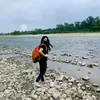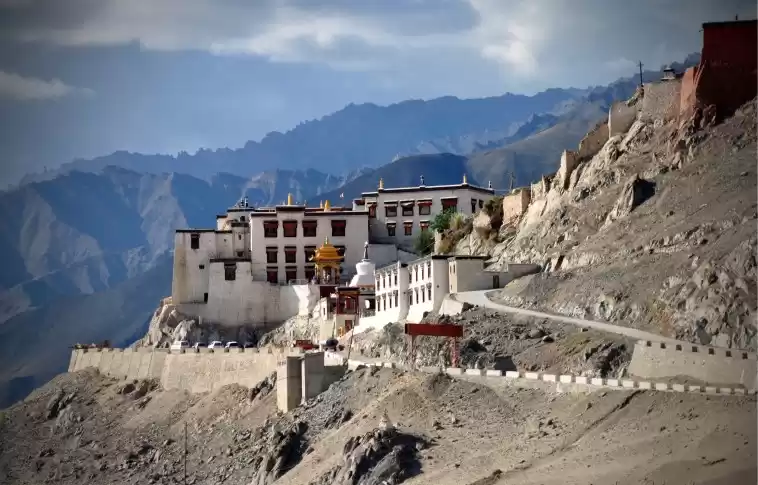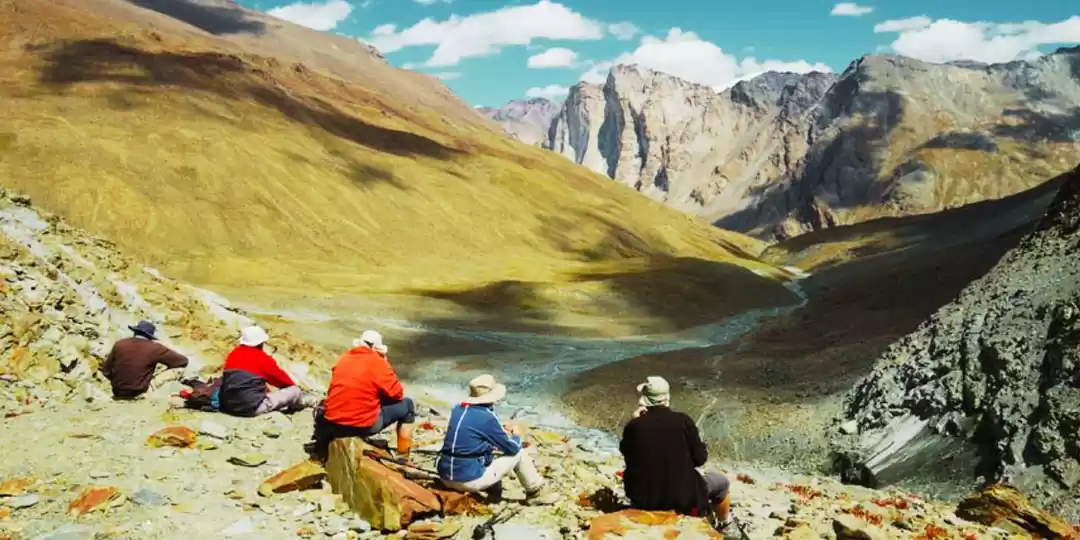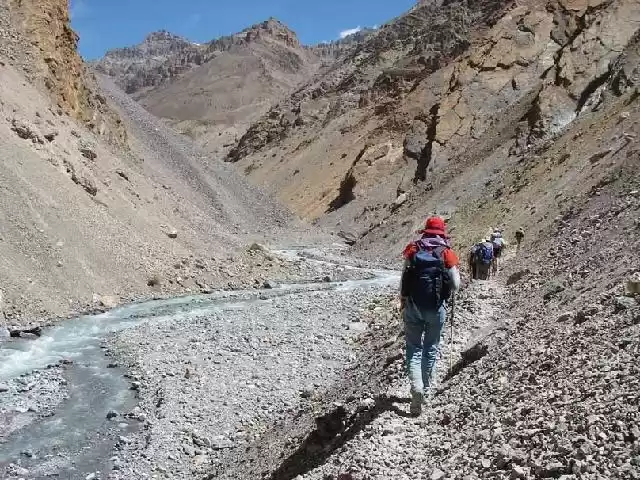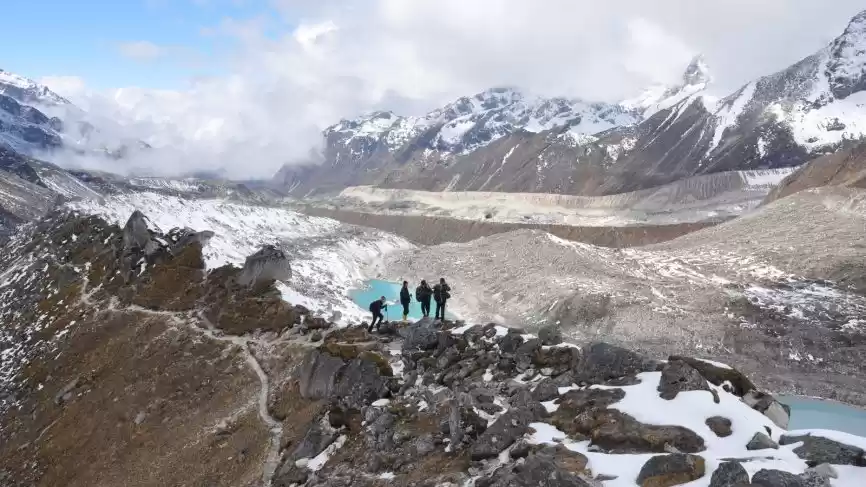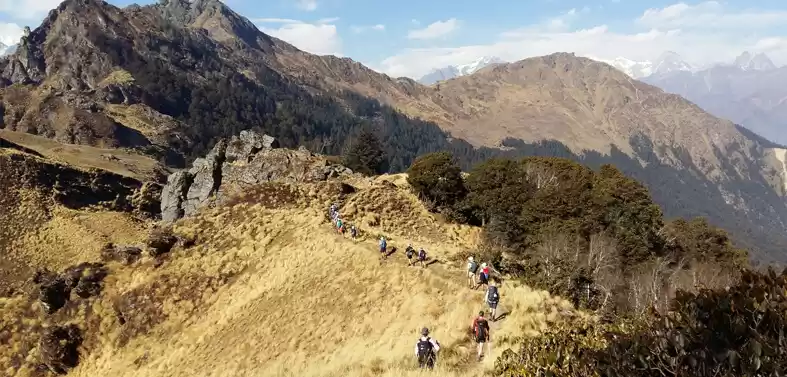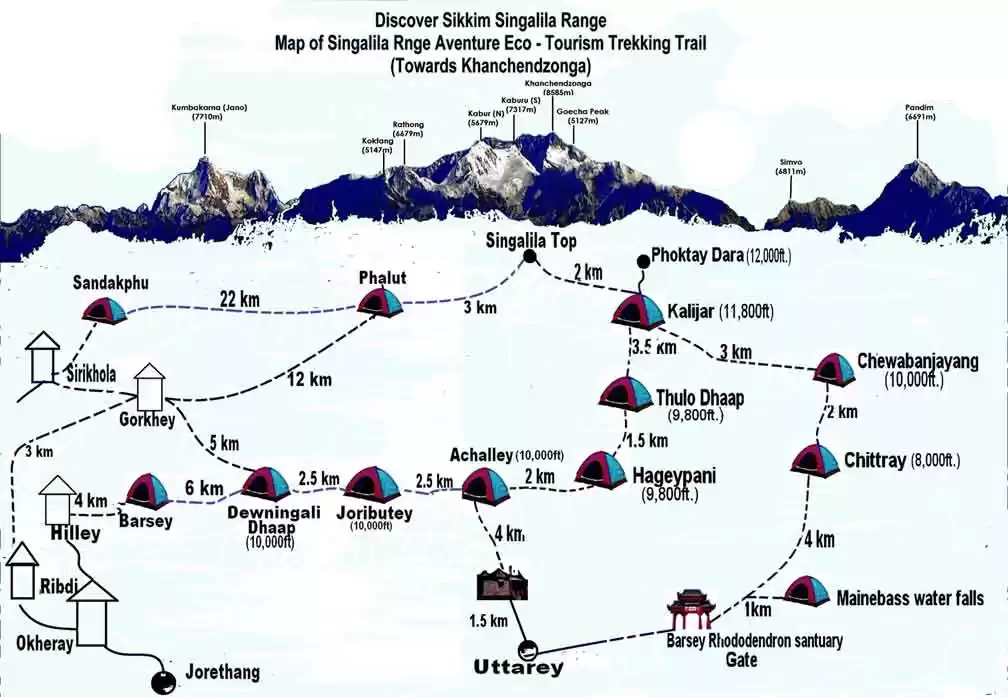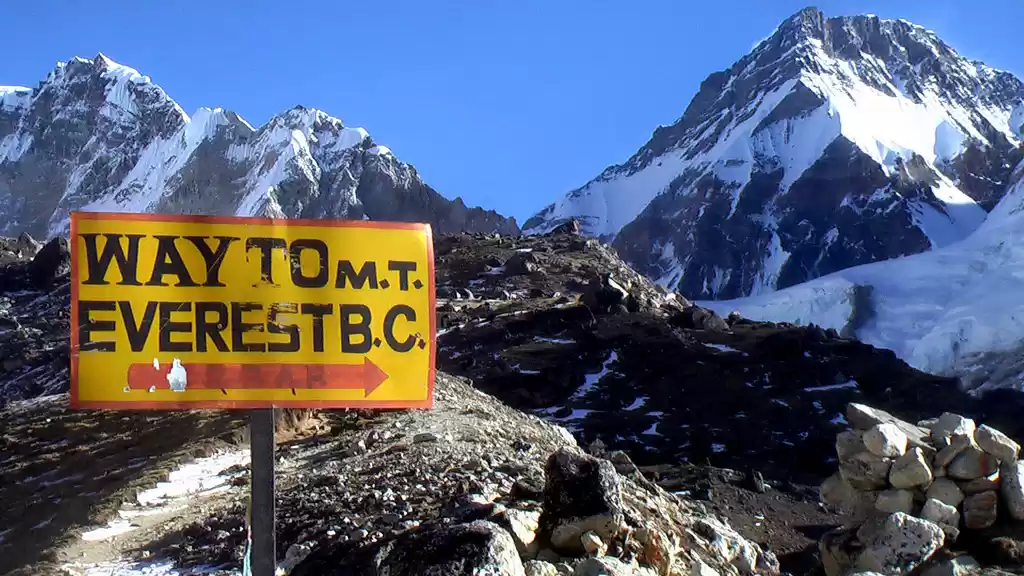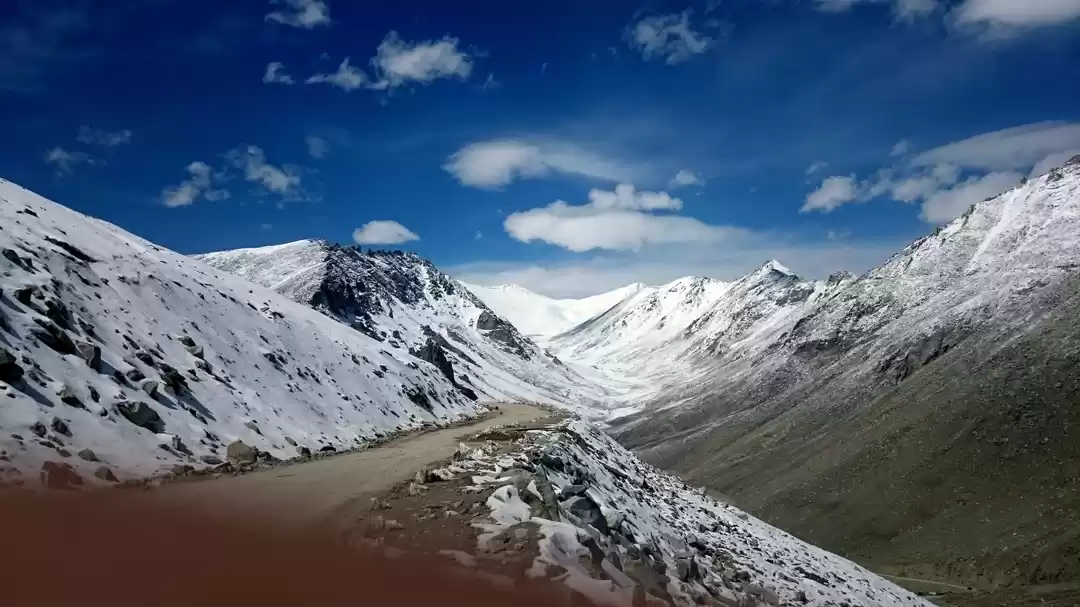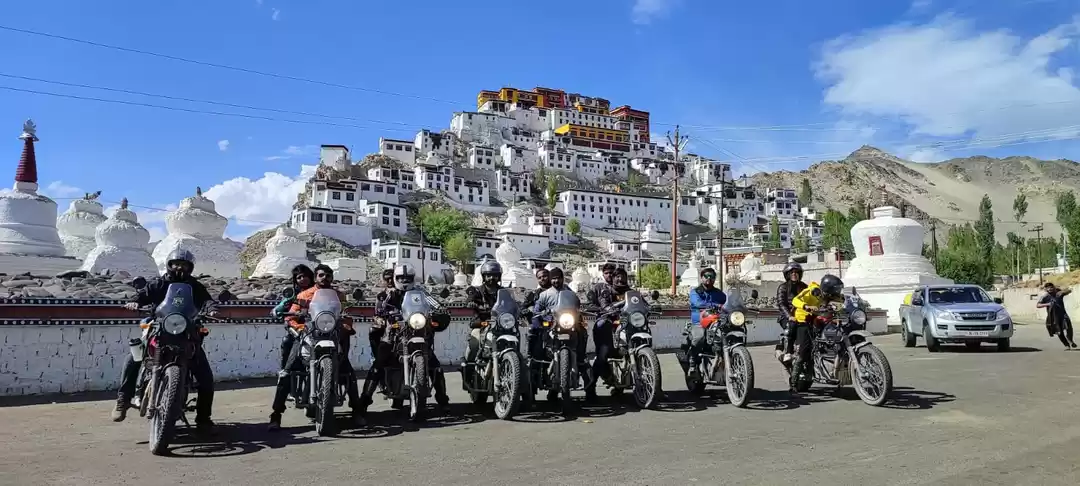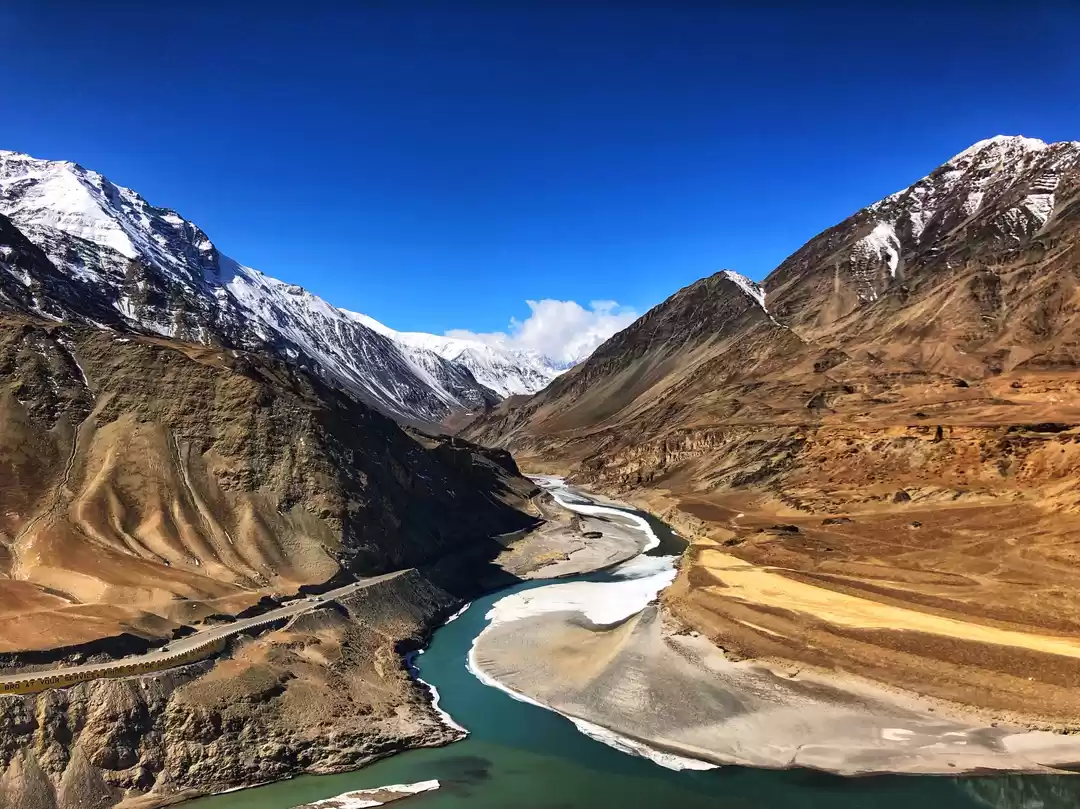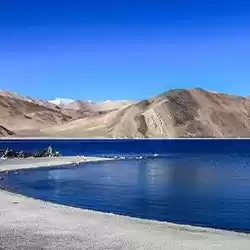
Ladakh offers some wonderful and exciting trekking experiences to the visitors. This Himalayan region is a haven for those seeking adventure in the lap of mountains and peaks. There are many trekking options in Ladakh, which vary in difficulty and duration. A few treks take two weeks to complete while some could be completed inside three days. Nonetheless, any of these treks will leave you with unforgettable memories.
First-timers and families travelling with kids could do an easy trek whereas those looking for a challenging experience can opt for a longer trek crossing multiple passes above 5000 metres and even attempt the ascent of a 6000-metre peak.
Solo travellers or small groups who are interested in joining a larger group can check out our fixed departure treks.
The best time for trekking in Ladakh is from May to October. However, some treks are possible only from early July due to heavy snowfall on the mountain passes in winters. The onset of winter marks the beginning of two treks that are organised from January to March every year in Ladakh: the Chadar trek on the frozen Zanskar river and the Snow Leopard trek.
Markha valley trek:
The Markha valley trek in the Hemis National Park is the most popular trek in Ladakh. The Markha valley runs parallel with the Indus valley, wedged between the snow-clad Stok Kangri massif to the north and the Zanskar range to the south. During this trek, you will see breathtaking mountain scenery, wild animals and small isolated villages surrounded by green barley fields. You will have the opportunity to stay in homestays in these villages and discover the way of life of the local people.
The trek takes 6 to 8 days to complete depending on the starting point. The Markha valley can be reached from two different routes: one from Spituk and the other from Chilling. The trek from Spituk is the longest option. It crosses 2 passes, Ganda La (4961m) and Kongmaru La (5260m), before reaching Hemis where the trek ends. Those who don’t have enough time and those looking to avoid the Ganda La pass could start the trek from Chilling, an easier and shorter option.
Best time: end of April to beginning of October
Duration: 6 to 8 days
Difficulty: level 3
Max altitude: 5260m
Nubra valley trek from Phyang to Hunder :
The trek from Phyang to Hunder connects the Indus valley to the Nubra valley. It follows an ancient trade route which was part of the old Silk Road network stretching from India to Central Asia. The highest point on this off-the-beaten-path trek is the Lasermo La pass (5438m) which is covered with ice and snow even in summer. From the pass, there is a wonderful panorama of the Karakoram range. This trek is done in 5 days.
After the trek, you will visit the main highlights of the Nubra valley. You will have the chance to ride on a double-humped Bactrian camel at Hunder sand dunes and marvel at the sight of the 32-metre tall statue of the Maitreya Buddha at Diskit monastery. Then, you will head back to Leh via the Khardung La pass.
Best time: mid-July to end of September
Duration: 5 days
Difficulty: level 3
Max altitude: 5438m
Rumtse to Tso Moriri trek :
If you are one of those looking for impressive landscapes, then the Rumtse to Tsomoriri trek is for you. This is one of the most beautiful and wild treks in Ladakh. This week-long trek takes you through the high-altitude plateau of Changthang (Rupshu). The region has distinctive landscapes and you will see mountains of different textures and colour while crossing 6 passes above 5000 metres. Even though Ladakh is a cold desert, it has some beautiful lakes to offer to the visitors. During this trek, you will have the chance to discover the scenic Tso Kar and Tso Moriri lakes.
This trek goes quickly to very high altitude; the first night in Kyamar is at 4500 metres and the next 6 days are always at an elevation between 4500 and 5500 metres. Therefore, it is important to be well-acclimatized to the altitude before starting the trek.
The Changpa nomads live on the Changthang plateau with their herds of pashmina goats and yaks. They relocate 8 to 10 times a year and one can never know in advance the location of their camp. If you are lucky, you may meet the nomads somewhere along the trek and be invited to sip a cup of butter tea inside their tent made of yak wool. Korzok, the largest hamlet in the region, is the main settlement where the Changpa reside. Located on the bank of the sapphire-blue lake of Tso Moriri, this is where this amazing trek ends.
Best time: mid-June to mid-October
Duration: 7 days
Difficulty: level 4
Max altitude: 5435m
Sham valley trek :
Often called the “baby trek” because of the easy nature of the trek, there is no doubt the Sham valley trek offers some picturesque views to the trekkers. If you are looking for an easy trek suited for your kids, then this is the one for you. It never goes above 4000 metres and it can be done throughout the year.
The trek passes through many small villages where you can spend the nights in homestays and enjoy the authentic local cuisine prepared by the families. Some ancient and famous monasteries at Likir, Rizong, Temisgam, Basgo and Alchi could be visited during and after the trek.
Best time: all year round
Duration: 3 days
Difficulty: level 1
Max altitude: 3874m
Stok Kangri climb (6153m):
The Stok Kangri peak is the perfect objective for a first mountaineering experience in the Himalayas and for those looking to cross the 6000-metre barrier. Even though the peak is not technical, climbers still have to use all the mountaineering gears such as crampons, axe, rope, etc. The expedition guide will provide a short introductory course on how to use the equipment during the day of acclimatization at the base camp.
The Stok Kangri expedition is hard on your body and mind but you will realise it was worth it when you reach the summit and enjoy the incredible view of the surrounding mountains. The expedition can be started from Stok or from Spituk, or it can be combined with the Markha trek.
Best time: mid-June to end of September
Duration: 4 to 6 days
Difficulty: level 5
Max altitude: 6153m
Spituk to Stok trek:
The trek from Spituk to Stok is for those who are short on time but want to experience a nice trek in Ladakh inside three days. Make an auspicious start to the trek by stopping at the Spituk monastery, an 11th-century monastery belonging to the Gelugpa sect.
After crossing the Indus river, you will reach Zingchen from where a two-hour hike will take you to Rumbak. It is a nice village with whitewashed houses surrounded by barley and mustard fields. You can stay in a homestay in this village. After spending the night at Rumbak, ascend to the top of Stok La pass from where you will get an amazing view of colourful snow-clad mountains. The winding way down to the village of Stok will leave you with some everlasting memories.
Best time: beginning of June to end of October
Duration: 3 days
Difficulty: level 2
Max altitude: 4855m
Lamayuru to Alchi trek:
The western part of Ladakh is not only famous for its centuries-old monasteries but also the Lamayuru to Alchi trek. This five-day trek is dotted with two tough passes - Kongskil La (4948m) and Stakspi La (5153m) - and will push your limit to the maximum, but you will be rewarded with dramatic mountain sceneries. Spend nights at homestays in remote villages if you want to experience local culture closely. Also, visit monasteries before or after the trek.
Best time: mid-June to mid-October
Duration: 5 days
Difficulty: level 4
Max altitude: 5153m
Zanskar trek from Padum to Lamayuru:
Zanskar is one of the most remote areas in Ladakh and that is where its beauty lies. This 10-day trek from Padum to Lamayuru is the best trek in Zanskar that covers ancient monasteries, small villages and the beautiful landscapes of the Zanskar range.
Before the start of the trek, you can visit the famous Phuktal monastery, one of the most isolated monasteries in Zanskar that was built in the 15th century. Zanskar offers sceneries of exceptional beauty, mountains in almost every colour and also its unique culture to the trekkers. The trek is peppered with three main passes: Hanuma La (4724m), Singge La (5009m) and Sir Sir La (4832m).
Best time: mid-June to beginning of October
Duration: 10 days
Difficulty: level 4
Max altitude: 5009m
Snow Leopard trek:
Ladakh is home to one of the rarest wild cats in the world: the majestic snow leopard. The Snow Leopard trek is organised in the Hemis National Park in the month of February and March. The Hemis National Park is home to snow leopards and many other species of mammals such as Tibetan wolves, Asiatic ibex, blue sheep and Ladakh urials.
Spotting the elusive snow leopard in sub-zero temperatures is certainly not easy. Patience is key to wildlife expeditions like these. After hours and sometimes days of waiting, many have sighted snow leopards in their binoculars and even returned home with images of the big cat captured on their cameras.
Best time: March
Duration: 8 days
Difficulty: level 2
Max altitude: 3956m
Chadar frozen river trek:
As Zanskar remains cut off from the rest of the country in winter due to heavy snowfall, the Chadar route acts as a lifeline.
Over the years, the Chadar trek has become the "next big thing" in Ladakh and it is easy to see why. Walking on the frozen Zanskar river that stretches 105 km in mind-numbing temperatures (-25 to -35 degrees) tests the limit of the trekkers. Also, there are not too many treks that pass through gorges with frozen waterfalls and that follow a trail of ice that turns into a mirror for the sky. The Chadar trek has received coverage in the form of documentaries, especially in the BBC's 2011 series called “Human Planet”.
Best time: January and February
Duration: 9 days
Difficulty: level 3

